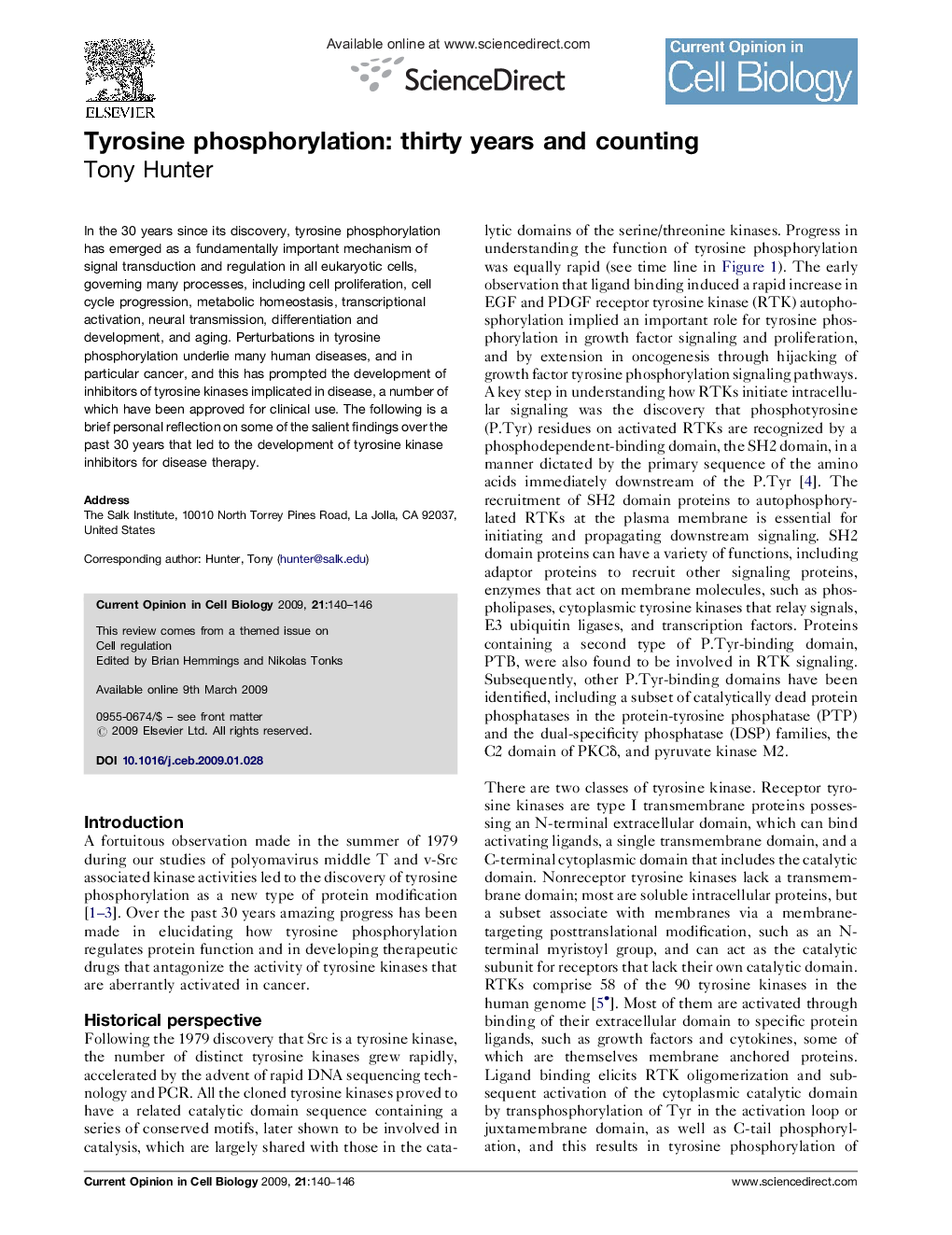| Article ID | Journal | Published Year | Pages | File Type |
|---|---|---|---|---|
| 2169923 | Current Opinion in Cell Biology | 2009 | 7 Pages |
In the 30 years since its discovery, tyrosine phosphorylation has emerged as a fundamentally important mechanism of signal transduction and regulation in all eukaryotic cells, governing many processes, including cell proliferation, cell cycle progression, metabolic homeostasis, transcriptional activation, neural transmission, differentiation and development, and aging. Perturbations in tyrosine phosphorylation underlie many human diseases, and in particular cancer, and this has prompted the development of inhibitors of tyrosine kinases implicated in disease, a number of which have been approved for clinical use. The following is a brief personal reflection on some of the salient findings over the past 30 years that led to the development of tyrosine kinase inhibitors for disease therapy.
